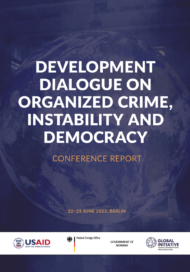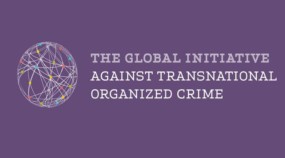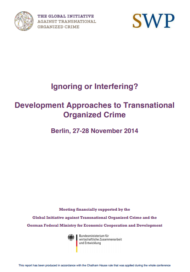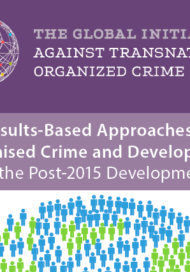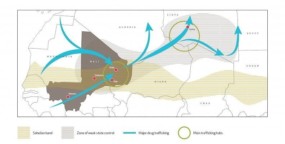Posted on 29 Sep 2022
Since 2013, the Development Dialogue series has been an integral part of our work. The Development Dialogue is an opportunity for foreign policy and development officials, external experts and stakeholders to discuss contemporary, policy-relevant themes on the intersections between development, organized crime and politics.
This Development Dialogue was unique, in that it took place after a two-year hiatus due to COVID-19. In that period, the world changed fundamentally – it is a different place from the world that prevailed at the time of the previous meeting held in Brussels in December 2019 hosted by the European Commission.
COVID-19’s impact on global health, economics, inequality and security; the fall-out of the Trump era; accelerating climate change; acute global wealth inequality; the war in Ukraine – these and many other critical events have changed the nature of global debate. At the same time, as we saw at the recent Development Dialogue in Berlin, many of these issues were already well embedded in discussions prior to COVID. They have just become more acute.
This Development Dialogue, co-hosted with the governments of Germany and the United States and with funding from the government of Norway, titled ‘Organized Crime, Instability and Democracy’, was a stock-taking of a post-COVID world. The discussion focused on two overarching themes: conflict, insecurity and the illicit economy; and organized crime and democracy, with a focus on corruption.
The aim of the Development Dialogues has always been to reinforce policymaking and the interventions of the development community.
This report provides an overview of the discussions, addresses key themes and draws out the potential implications for development actors seeking to engage in development programming in these contexts. The Development Dialogue was hosted under the Chatham House Rule, where comments cannot be attributed.
